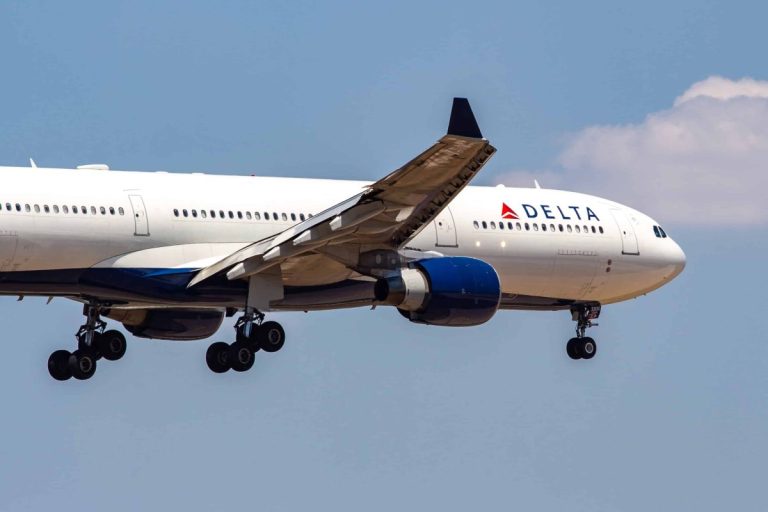Delta Air Lines experienced staff shortages on Sunday that led to about 100 flight cancellations, according to CNN.
Flights out of Atlanta’s Hartsfield-Jackson International Airport, the Detroit Metropolitan Airport and Minneapolis-St. Paul Airport were among those cancellations. The airline released a statement on Sunday speaking on the matter.
“We apologize to our customers for the inconvenience, and the majority have been rebooked for the same travel day,” the airline said.
Delta attributed the cancellations to factors such as “staffing, large numbers of employee vaccinations and pilots returning to active status.”
To accommodate passengers who experienced the cancellations, Delta temporarily lifted its seat-blocking policy for yesterday and today. Passenger capacity was increased by making the middle seats available.
Last year, Delta began blocking the sale of middle seats on their flights to keep passengers further apart. The policy was a response to the COVID-19 outbreak and the Center for Disease Control and Prevention’s ‘six feet apart’ safety recommendation.
The airline is now singing a different tune. Delta recently announced that it plans to end their seat-blocking policy after May 1. The company expects that about 64% of its pre-pandemic passenger list will have at least one dose of the COVID-19 vaccine, according to Delta’s CEO Ed Bastian. Despite Delta’s accommodations for the cancellations, the policy will remain in place until May 1.
In their announcement about the seat policy, Delta also said it has extended the timeline of use for airline credits. Initially, credits received for cancelled flights in 2020 and 2021 came with a 12-month expiration date. Now passengers can use the credit earned in either year through the end of 2022.
According to CNN, this weekend saw a boost in air travel during the pandemic. Over a million passengers traveled across the United States on Friday and Saturday, respectively. Saturday was the 24th consecutive day that more than a million people traveled by air.


